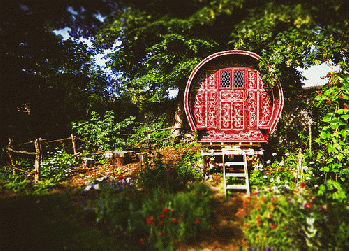| Back OpEd News | |||||||
|
Original Content at https://www.opednews.com/articles/The-village-people-by-Gary-Lindorff-Poem_Poetry-190716-104.html (Note: You can view every article as one long page if you sign up as an Advocate Member, or higher). |
|||||||
July 16, 2019
The village people
By Gary Lindorff
When I see young people living in community, simply and sustainably, I feel I am living in the past. I have very little that they want. Here is a poem for them.
::::::::
In the woods
there is a tiny house, a yurt and some tents.
Last night when we were walking
we smelled a pine-wood fire.
There they were-
we could barely make them out
between the trees,
sitting by the fire eating
outside the tiny house.
We almost walked over there to say hello,
but we were too shy,
and besides, our dinner was cooking.
We call them the village people.
They are young and smart
and they have many skills.
We loan them things.
They always return them.
They like to barter,
but sometimes we pay them for work.
I wish they could always live there,
but by winter they will be gone.
Some of them may get jobs.
Some will move into town
where they will live more like us.
until Spring returns
and they will want to be free again.
They make me want to be young,
but only in a different time.
Authors Website: https://garylindorff.wordpress.com
Authors Bio:
Gary Lindorff is a poet, writer, blogger and author of five nonfiction books, three collections of poetry, "Children to the Mountain", "The Last recurrent Dream" (Two Plum Press), "Conversations with Poetry (coauthored with Tom Cowan), and a memoir, "Finding Myself in Time: Facing the Music". Lindorff calls himself an activist poet, channeling his activism through poetic voice. He also writes with other voices in other poetic styles: ecstatic, experimental and performance and a new genre, sand-blasted poems where he randomly picks sentence fragments from books drawn from his library, lists them, divides them into stanzas and looks for patterns. Sand-blasted poems are meant to be performed aloud with musical accompaniment.
He is a practicing dream worker(with a strong, Jungian background) and a shamanic practitioner. His shamanic work is continually deepening his partnership with the land. This work can assume many forms, solo and communal, among them: prayer, vision questing, ritual sweating, and sharing stories by the fire. He is a born-pacifist and attempts to walk the path of non-violence believing that no war is necessary or inevitable.
